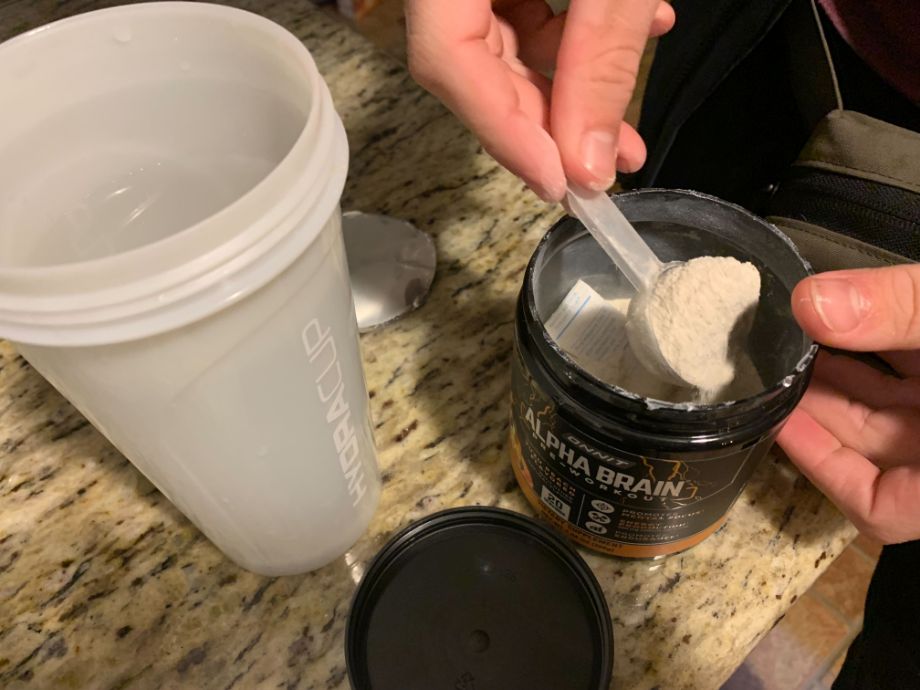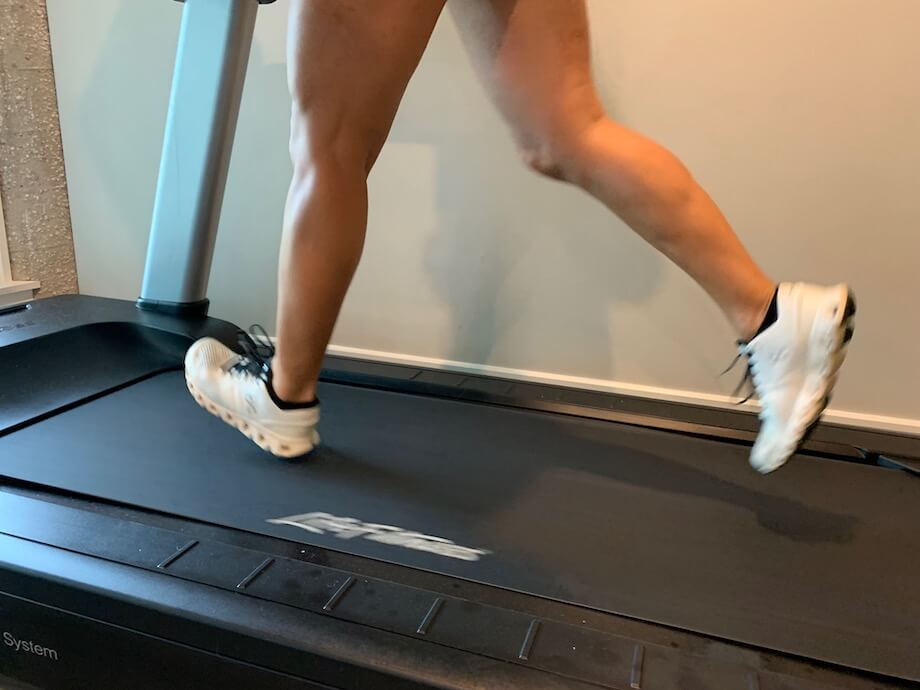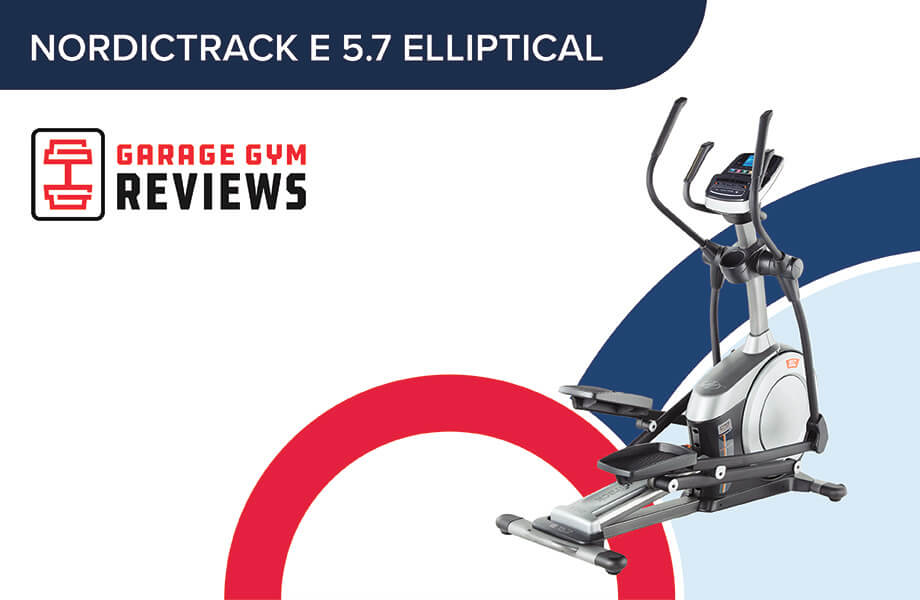If you like to hit the gym in the early morning and eat breakfast after checking training off your daily to-do list, you may wonder if you can take pre-workout on an empty stomach.
Most pre-workouts contain stimulant ingredients, such as caffeine, to provide a rapid burst of energy to help power your workout. But is it safe to take it on an empty stomach, or do pre-workouts work better with a pre-workout meal or snack?
Those are great questions, especially if you’re new to using pre-workout. Whether you like to start your day with exercise or your training session falls during your intermittent fasting window, I’m here to share my wisdom as a registered dietitian and try to take the guesswork out of using pre-workout.
RELATED: Best Pre-Workout For Beginners
Read on to learn the pros and cons of sipping your pre-workout on an empty stomach, plus my best tips for getting the most out of your pre-workout.
Medical disclaimer: This article is intended for educational and informational purposes only. It is not intended as a substitute for medical advice. For health advice, contact a licensed healthcare provider.
What Is Pre-Workout?
Pre-workout refers to dietary supplements designed to be taken shortly before working out to increase your energy level. The energy boost you get from pre-workout can help increase motivation to get your workout started and help you maintain high energy during training.
The more energized you feel, the better you’ll perform, whether it’s in terms of speed, endurance, or the number of repetitions you complete before fatigue sets in. Research has found that the best pre-workout supplements enhance athletic performance through resistance training, high-intensity exercise, and cardio.
Most, but not all, pre-workouts contain stimulant ingredients to achieve this energizing effect.
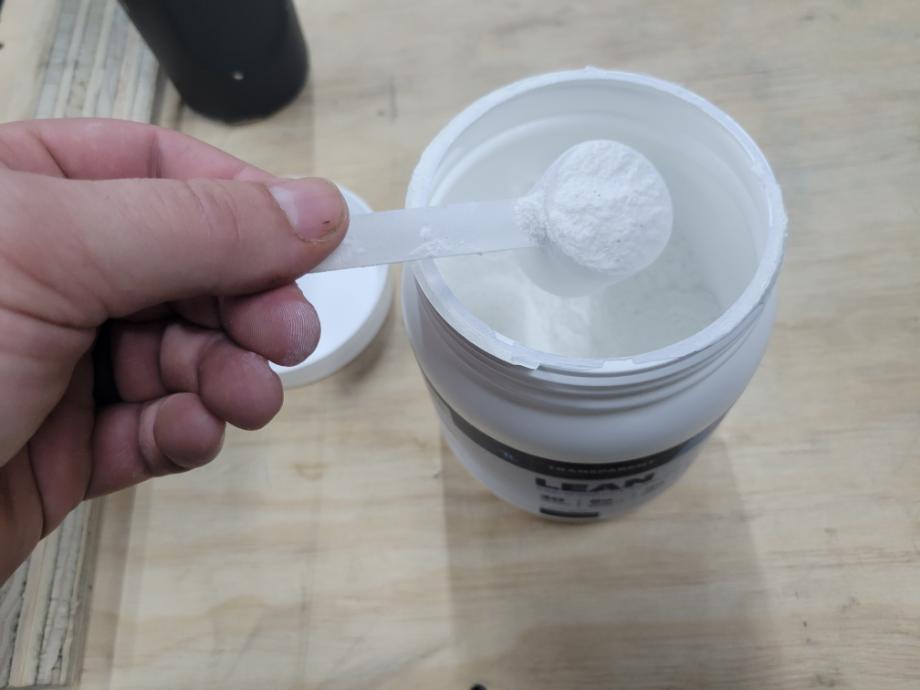
Caffeine is by far the most common stimulant found in pre-workout. The amount of caffeine in pre-workout can range from about the equivalent found in a single cup of regular coffee up to several cups of coffee.
RELATED: Coffee Vs Pre-Workout
Spoiler alert: the caffeine content in pre-workout will determine how you handle taking pre-workout on an empty stomach. But more on that in a minute.
Multi-ingredient pre-workout supplements1 (MIPS) contain other ingredients to benefit exercise performance, including cell volumizers, nitric oxide boosters, and pump enhancers. Examples include:
- Beta-alanine: which helps support muscular endurance2 and delay fatigue.
- Betaine anhydrous: which helps increase work capacity3 during high-intensity training.
- Branched-chain amino acids (BCAAs): which help elevate energy production in muscle tissue, increase muscle protein synthesis4, and support post-workout recovery.
- Creatine: which helps increase the amount of energy muscles produce during exercise to build muscle strength5.
- Electrolytes: which help support hydration and replace electrolytes lost in sweat.
- L-arginine, L-citrulline: which help support nitric oxide production6, improve blood flow to muscles (aka muscle pump), and increase muscular energy production.
Pre-workout formulas containing energizing ingredients—plus one or more of the above ingredients—offer multipurpose benefits, which can help you cut down on how many supplements you take (and buy).
RELATED: Best Pre-Workout with BCAAs
Benefits of Taking Pre-Workout on an Empty Stomach
Taking a pre-workout on an empty stomach may not be best for everyone, but it can offer a few advantages to reach your fitness goals. Here are a few reasons why some choose to use pre-workout before eating.
Faster Absorption
If you take pre-workout shortly after a meal, the food in your digestive system can slow down the absorption of the pre-workout. You’ll still benefit from pre-workout if you’ve eaten, but it may take longer to kick in. You can work around this by giving yourself more time between taking pre-workout and exercising.
RELATED: How Long Does it Take for Pre-Workout to Kick In?
As you can imagine, that’s not ideal if you’re short on time or want to work out first thing in the morning. An empty stomach may allow your body to quickly absorb pre-workout ingredients, translating to a faster energy spike.
Energy for AM Exercise
Fitness enthusiasts may like to rise and grind, but that doesn’t necessarily mean they naturally roll out of bed with loads of energy. Some lifters use carbohydrates for natural energy before exercise, but that won’t work if you want to train in a fasted state to maximize fat burn.
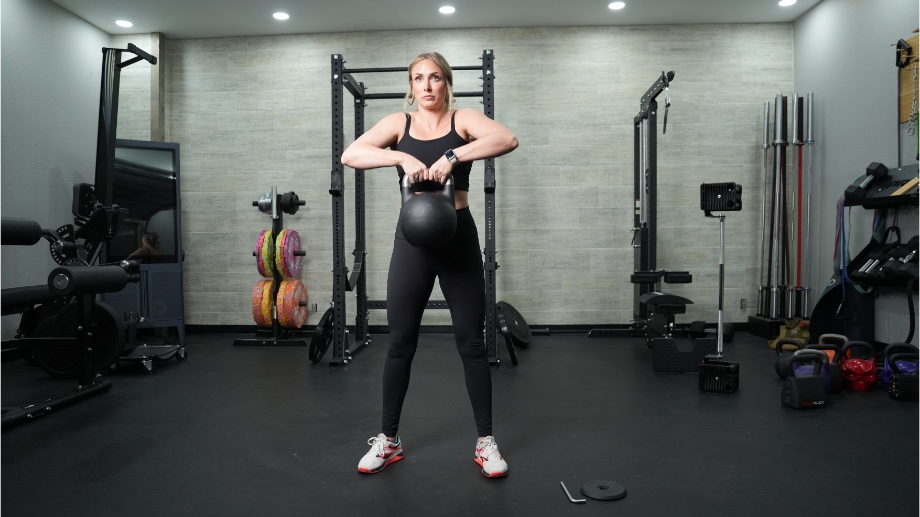
RELATED: Best Pre-Workout Food
Many pre-workouts use zero-calorie sweeteners, so they’re free from carbs and won’t raise blood sugar. If you’re sluggish at the start of the day, taking a pre-workout without any calories or macronutrients on an empty stomach can give you the pick-me-up you need to feel more alert and ready to train and ensure your morning workout is impactful.
RELATED: Does Pre-Workout Have Calories?
Helps Support Fat Loss
Exercising on an empty stomach already forces your body to burn stored fat to fuel activity, but adding a caffeinated pre-workout in the mix may enhance fat burn7. Research shows that caffeine enhances your body’s ability to oxidize—or break down—fat stores.
Caffeine appears to increase fat burning in both the fasted and fed state, so you can still benefit if you prefer your pre-workout after eating. Taking pre-workout and exercising in a fasted state may ratchet up how much body fat you burn and support body composition8.
Potential Side Effects of Pre-Workout on an Empty Stomach
Unfortunately, many potential side effects exist when taking pre-workout on an empty stomach. That doesn’t mean you can’t do it, but you should carefully consider the ingredients and dosage of your pre-workout. Hopefully, you’re already doing that.
There’s always a risk of digestive upset with any sports nutrition supplement—even those considered safe—because everyone’s digestive system has different sensitivity levels. The risk of experiencing digestive side effects from pre-workout is much higher when taken on an empty stomach.
RELATED: Pre-Workout Side Effects
Many pre-workouts contain artificial flavoring, sweeteners, and additives that may irritate your stomach or cause bloating, especially if you don’t have any food in your system to help buffer them. Some additives have links to changes in the gut microbiome9 that can lead to inflammation and irritable bowel syndrome (IBS) symptoms over time.
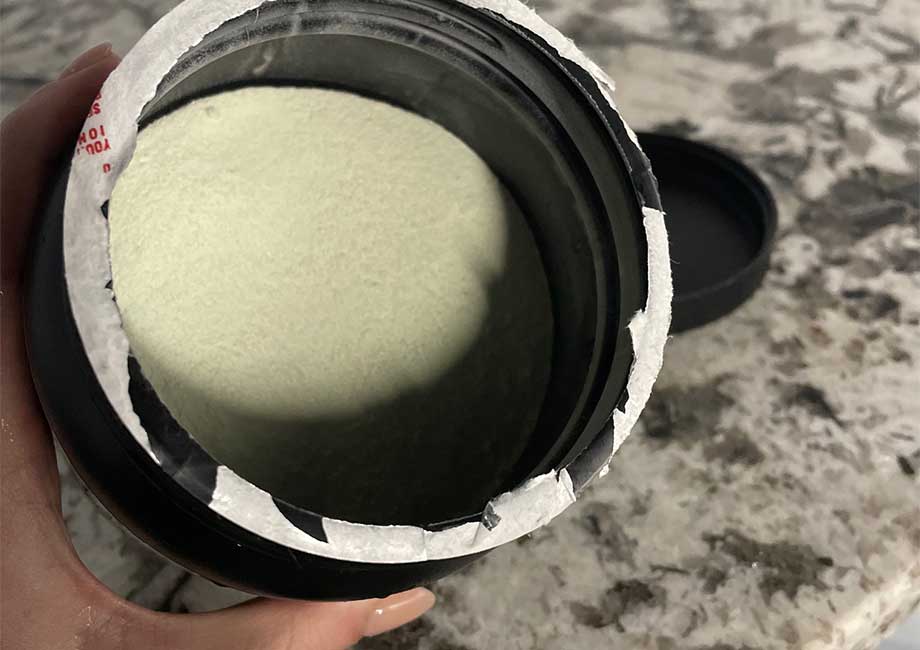
Too much caffeine on an empty stomach can cause stomach pain, heartburn, nausea, and even diarrhea. If you experience any of these side effects, you may want to try a small meal or snack before your pre-workout or try a different formulation.
RELATED: Best Pre-Workout Snack
Pre-workouts with high doses of caffeine10 can cause other side effects, like jitters, headache, dizziness, heart palpitations, and changes in blood pressure. Stim-free pre-workouts aren’t as likely to cause these side effects as high-stim pre-workouts.
How To Take Pre-Workout
Take your pre-workout as directed, meaning follow the recommended serving size and directions for mixing with water (at the very least) provided by the manufacturer. If you’re eating a meal before your workout, you can also add it to a smoothie. The fluid will help you stay hydrated during exercise.
If you spend time on social media, you might see some gym-goers swallowing scoops of pre-workout without mixing it into water and claiming it gets absorbed and works faster this way. This practice is called dry scooping and is NOT how you take pre-workout.

Some pre-workouts include instructions for higher energy dosing, such as taking one and a half or two servings. Before experimenting with dosing, try the pre-workout as intended and see how you feel.
If you experience any side effects or feel like the stimulant is too strong for you, you can try using a half serving next time. On the other hand, if you feel like you need even more of a boost, you could try increasing it to one and a half servings. Go slowly to minimize the risk of side effects.
Pre-workout takes around 30 minutes to start working and peaks around 1 hour after taking it, so plan to take your pre-workout 20 to 30 minutes before you start working out. This is plenty of time for the ingredients to start working on an empty stomach and reach their maximum effect while you’re training.
What To Look For in a Pre-Workout
Whether you’re using pre-workout fasted or fed, here are some things to keep in mind when you’re wondering what to look for in a pre-workout.
Caffeine Content
How do you know whether a pre-workout is low-stim or high-stim? Sometimes, it’s labeled on the product, but it’s as simple as checking the amount of caffeine or energy blend on the Supplement Facts label.
RELATED: Strongest Pre-Workout
For reference, there are about 100 milligrams of caffeine in an eight-ounce cup of coffee11 and 64 milligrams in an espresso shot12. Low-stim pre-workout will contain around 100 milligrams or less, while high-stim pre-workout may contain 300 to 500 milligrams of caffeine per serving.
The Food and Drug Administration has set 400 milligrams of caffeine13 per day as the maximum dose. If you drink tea, coffee, or other caffeinated drinks, don’t forget to factor those into your daily amount.
Ingredients
Besides caffeine, you’ll want to look for the clinically backed ingredients listed above to support your goals and training style. Ideally, you’ll find a pre-workout with transparent labeling, meaning the product fully discloses the amount of each ingredient. Some ingredients may be redundant if stacking supplements, like protein powder with BCAAs or electrolyte powders.
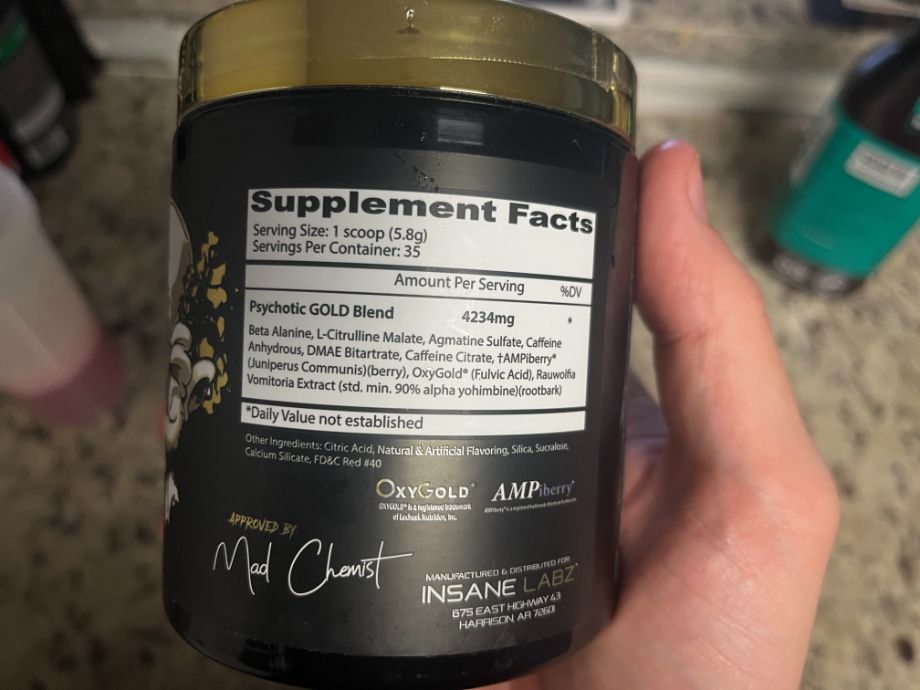
Of course, the right pre-workout for your needs should also fit your budget and come in a flavor you enjoy. Be sure to check out our thoughts on the best pre-workout ingredients.
Pre-Workout on an Empty Stomach: Final Thoughts
So, should you take pre-workout on an empty stomach? There’s no right or wrong answer. It comes down to personal preference and the amount of caffeine in your pre-workout.
Some pre-workouts are more likely to cause side effects, like jitters, heart palpitations, or an upset stomach, while you may tolerate other formulas without any food in your system. Also, pre-workouts that contain large doses of caffeine are more likely to cause side effects on an empty stomach than low-stim and stim-free pre-workouts.
Pre-Workout on an Empty Stomach: FAQs
Should I eat before pre-workout?
Whether you eat or not before taking pre-workout is an individual choice. Some people experience side effects, like stomach upset, if they take pre-workout on an empty stomach. If you’re prone to digestive issues or tend to be sensitive to caffeine, you may feel best using a stim-free formula or using pre-workout in a fed state. If caffeine isn’t a problem and you want your pre-workout to deliver rapid energy, taking it on an empty stomach can speed up absorption and results.
RELATED: Pre-Workout Breakfast
Can I take pre-workout to wake up?
If your pre-workout contains caffeine, you can use it to help you wake up. It’s no different than sipping coffee or tea to start your day. However, pre-workout isn’t a replacement for quality sleep. Pay attention to the amount of caffeine in your pre-workout and if it aligns with your threshold for caffeine intake.
A cup of black tea has about 50 milligrams of caffeine, and a cup of coffee has about 100 milligrams. If one cup of coffee gets you buzzing, don’t choose a pre-workout that contains much more than this amount.
How fast does pre-workout kick in on an empty stomach?
Most pre-workout formulas take effect within 30 to 60 minutes after drinking them. If you’ve recently eaten, the food in your digestive system can slow the absorption of your pre-workout and increase the time it takes to kick in.
On an empty stomach, you can expect to start to feel your pre-workout within about 30 minutes of taking it, with peak benefits around one hour.
These statements have not been evaluated by the Food and Drug Administration. This product is not intended to diagnose, treat, cure, or prevent any diseases.
References
- Harty PS, Zabriskie HA, Erickson JL, Molling PE, Kerksick CM, Jagim AR. Multi-ingredient pre-workout supplements, safety implications, and performance outcomes: a brief review. J Int Soc Sports Nutr. 2018;15(1):41. Published 2018 Aug 8. doi:10.1186/s12970-018-0247-6
- Trexler ET, Smith-Ryan AE, Stout JR, Hoffman JR, Wilborn CD, Sale C, Kreider RB, Jäger R, Earnest CP, Bannock L, Campbell B, Kalman D, Ziegenfuss TN, Antonio J. International society of sports nutrition position stand: Beta-Alanine. J Int Soc Sports Nutr. 2015 Jul 15;12:30. doi: 10.1186/s12970-015-0090-y. PMID: 26175657; PMCID: PMC4501114.
- Cholewa JM, Wyszczelska-Rokiel M, Glowacki R, Jakubowski H, Matthews T, Wood R, Craig SA, Paolone V. Effects of betaine on body composition, performance, and homocysteine thiolactone. J Int Soc Sports Nutr. 2013 Aug 22;10(1):39. doi: 10.1186/1550-2783-10-39. PMID: 23967897; PMCID: PMC3844502.
- Wolfe RR. Branched-chain amino acids and muscle protein synthesis in humans: myth or reality? J Int Soc Sports Nutr. 2017 Aug 22;14:30. doi: 10.1186/s12970-017-0184-9. PMID: 28852372; PMCID: PMC5568273.
- Wu SH, Chen KL, Hsu C, Chen HC, Chen JY, Yu SY, Shiu YJ. Creatine Supplementation for Muscle Growth: A Scoping Review of Randomized Clinical Trials from 2012 to 2021. Nutrients. 2022 Mar 16;14(6):1255. doi: 10.3390/nu14061255. PMID: 35334912; PMCID: PMC8949037.
- Kiani AK, Bonetti G, Medori MC, Caruso P, Manganotti P, Fioretti F, Nodari S, Connelly ST, Bertelli M. Dietary supplements for improving nitric-oxide synthesis. J Prev Med Hyg. 2022 Oct 17;63(2 Suppl 3):E239-E245. doi: 10.15167/2421-4248/jpmh2022.63.2S3.2766. PMID: 36479475; PMCID: PMC9710401.
- Conger SA, Tuthill LM, Millard-Stafford ML. Does Caffeine Increase Fat Metabolism? A Systematic Review and Meta-Analysis. Int J Sport Nutr Exerc Metab. 2022;33(2):112-120. Published 2022 Dec 10. doi:10.1123/ijsnem.2022-0131
- Tabrizi R, Saneei P, Lankarani KB, et al. The effects of caffeine intake on weight loss: a systematic review and dos-response meta-analysis of randomized controlled trials. Crit Rev Food Sci Nutr. 2019;59(16):2688-2696. doi:10.1080/10408398.2018.1507996
- Rinninella E, Cintoni M, Raoul P, Gasbarrini A, Mele MC. Food Additives, Gut Microbiota, and Irritable Bowel Syndrome: A Hidden Track. Int J Environ Res Public Health. 2020;17(23):8816. Published 2020 Nov 27. doi:10.3390/ijerph17238816
- de Souza JG, Del Coso J, Fonseca FS, et al. Risk or benefit? Side effects of caffeine supplementation in sport: a systematic review. Eur J Nutr. 2022;61(8):3823-3834. doi:10.1007/s00394-022-02874-3
- United States Department of Agriculture. FoodData Central: Brewed Coffee.
- United States Department of Agriculture. FoodData Central: Brewed Espresso.
- Food and Drug Administration. Spilling the Beans: How Much Caffeine Is Too Much? 2023.


